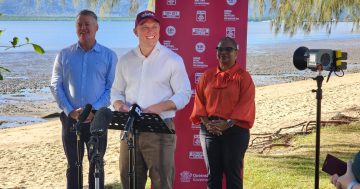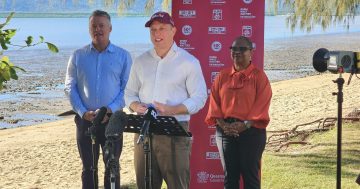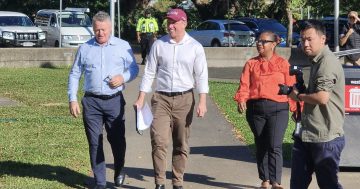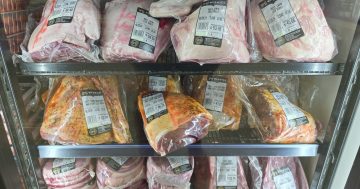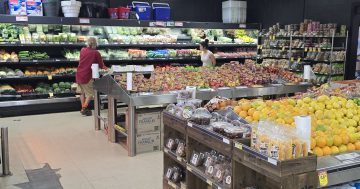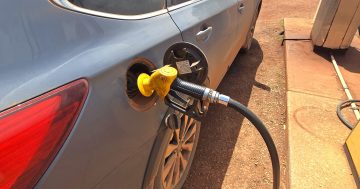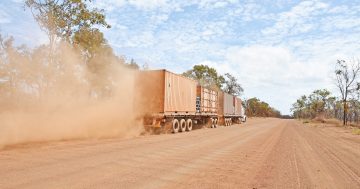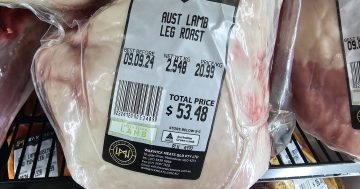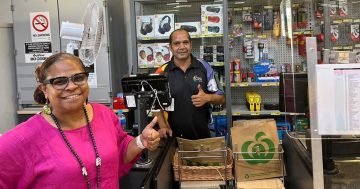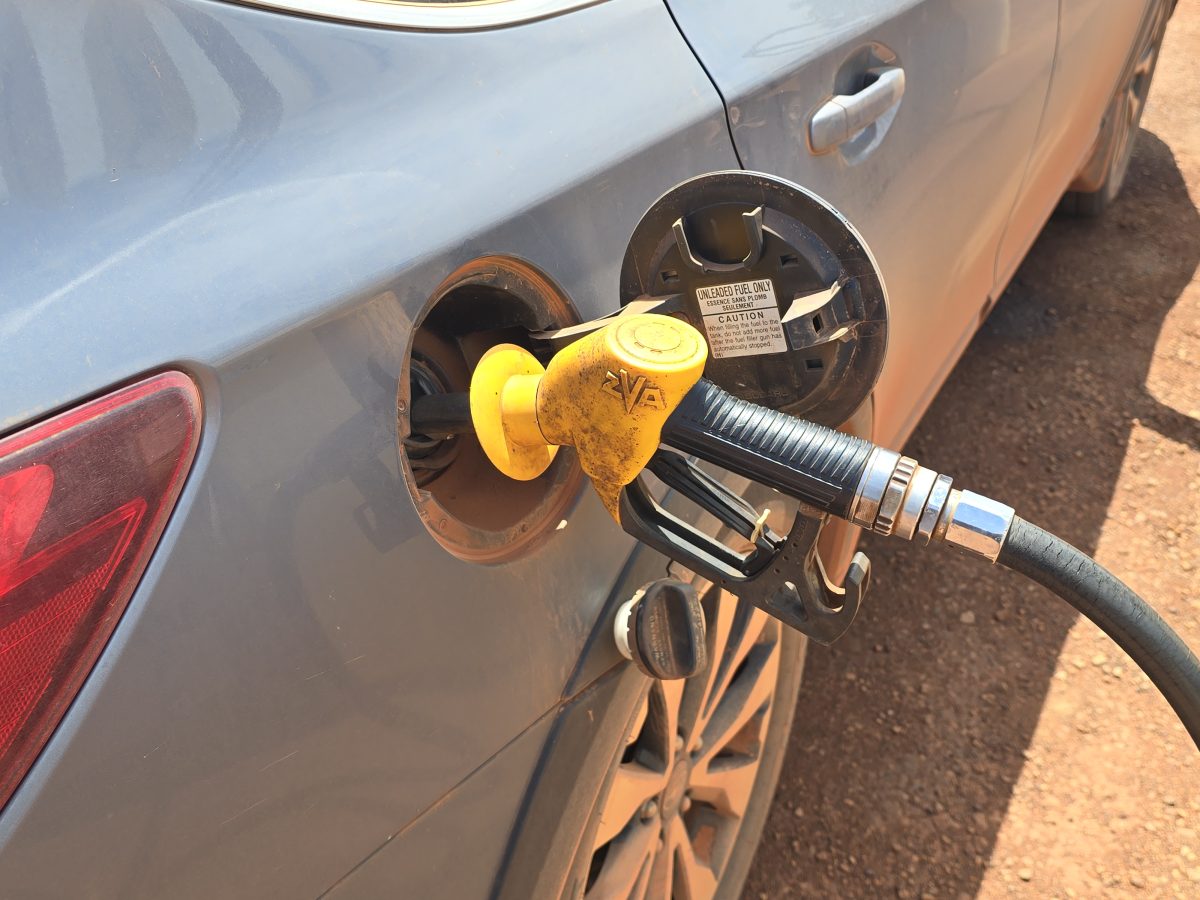
Until the Remote Communities Freight Assistance Scheme includes things like fuel in its definition of “eligible essential goods”, the new 20 per cent discount will make little tangible difference to the wallets of those living in the remote far north of Queensland. Photo: Cape York Weekly.
If I were to dust off the old crystal ball and offer a prescient suggestion, it would be that increasing the Remote Communities Freight Assistance Scheme discount to 20 per cent as of 9 September will make absolutely zero per cent change to the cost of living up here.
It’s hardly a Nostradamus-like prediction, and one any of the government policy boffins in Brisbane could have worked out for themselves had they gotten their boots dusty on the ground and spoken to anyone who calls Cape York or the Torres Strait home before rolling out another remote strategy destined for failure.
The problem is with government’s definition of “eligible essential goods” – that is, a definition that essentially ignores the reality of which day-to-day items are causing the most cost of living grief for residents of the northernmost part of Queensland.
If you’re scratching your head thinking this feels like a familiar argument, you aren’t losing the plot – it’s effectively the same one I made when Premier Steven Miles announced the increase was on its way from a media conference on the Cairns Esplanade back in late June as the government began to ratchet up its pork barrelling ahead of next month’s state election.
At the time, I asked him whether his government would consider expanding its definition of “eligible essential goods” because it excluded what even the dumbest person in the room would consider vital to everyday life – I’m talking about things like fuel, clothing and whitegoods. Premier Miles refused to be drawn into the debate and said “[a]nd over time, of course, we’ll continue to do more, but right now, this is a major announcement to reduce the costs of fresh fruit and vegetables”, which is the political equivalent of admitting it wasn’t something that had been considered, nor would it be in the foreseeable future.
A discount at the supermarket on bread, milk, and fruit and vegetables is great, but it does little to assist the family budget when it costs close to $3 per litre to fuel up in some spots up this way. For comparison, the same fuel currently costs about $1.70 per litre in Cairns, while the service stations in Brisbane closest to the Premier’s Parliament House office were charging motorists about the same. When you repeat the us-versus-them cost assessment with other non-eligible essentials like whitegoods, clothing and household furniture, it’s a cut-and-paste result that highlights why a 20 per cent discount at the supermarket checkout will not lessen the crippling cost of living pressures being experienced up here every day.
I’m not the only one who’s overheard visitors griping about fuel and food costs during their Cape York adventure, but it’s probably fair to suggest the ones who have a genuine right to be a bit whingy are the ones stuck with the ridiculous prices 52 weeks of the year, not just two or three.
Irrespective of which dictionary you pick up, they all seem to agree an essential item is one that is “absolutely necessary” and “extremely important”. I know politics and bureaucracies aren’t renowned for pumping out a conga line of geniuses, but anyone driving policy development for the betterment of the lives of Queensland’s remotest residents doesn’t need a Mensa membership to determine fuel is absolutely necessary and extremely important for getting places. Like supermarkets, for example. And jobs. They still want us to have one of those and contribute to the economic and social growth of the state, don’t they? I’d argue clothes are also fairly critical in the equation, because I’m told no one wants to employ an applicant who has to walk to work bare-arse.
Until the government pulls its head out of the sands of essentiality and admits it’s the everyday items not on the discount eligibility list causing the most financial distress up here, the oversight will continue to fuel the failure of its remote freight subsidy scheme. And that failure comes at our cost.
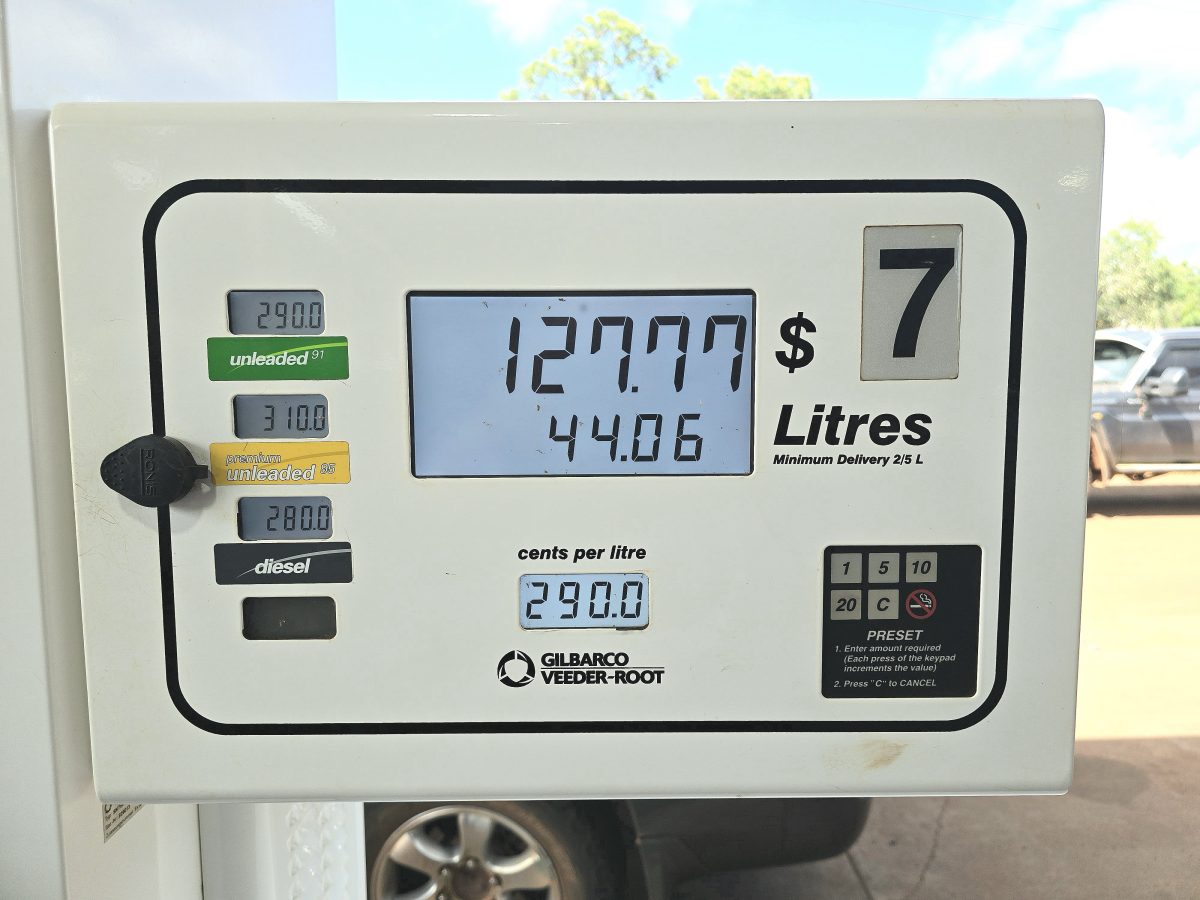
If the State Government wants evidence of the day-to-day items causing the most cost of living grief for Cape York and Torres Strait residents, editor Lyndon Keane says Premier Steven Miles and his team only need look as far as a fuel bowser anywhere in the region. Photo: Cape York Weekly.


